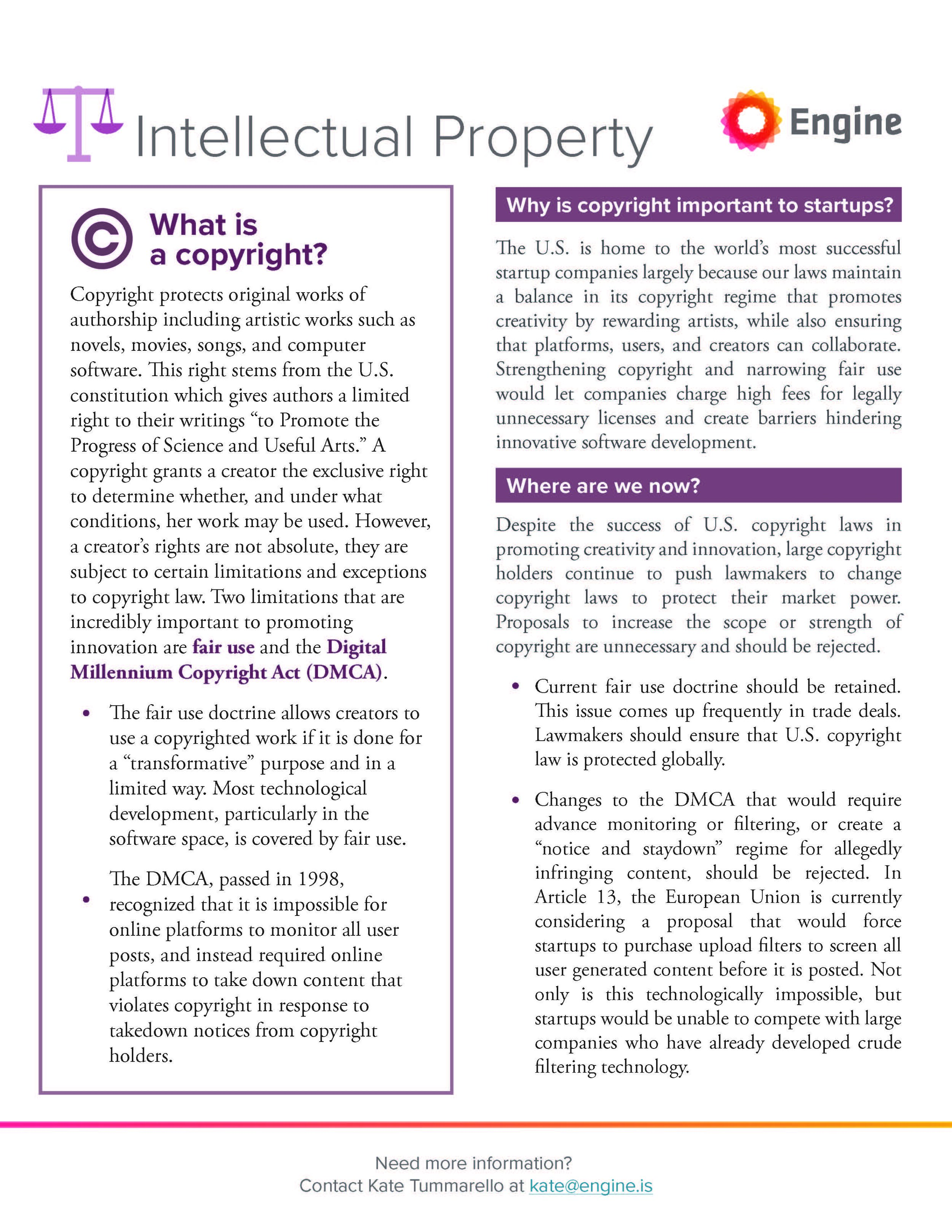What is a copyright and which laws govern copyrights?
Copyright protects original works of authorship including artistic works such as novels, movies, songs, and computer software. This right stems from the U.S. constitution which gives authors a limited right to their writings “to Promote the Progress of Science and Useful Arts.” A copyright grants a creator the exclusive right to determine whether, and under what conditions, her work may be used. However, a creator’s rights are not absolute, they are subject to certain limitations and exceptions to copyright law. Two limitations that are incredibly important to promoting innovation are fair use and the Digital Millennium Copyright Act (DMCA).
The fair use doctrine allows creators to use a copyrighted work if it is done for a “transformative” purpose and in a limited way. Most technological development, particularly in the software space, is covered by fair use.
The DMCA, passed in 1998, recognized that it is impossible for online platforms to monitor all user posts, and instead required online platforms to take down content that violates copyright in response to takedown notices from copyright holders.
Why is copyright important to startups?
The U.S. is home to the world’s most successful startup companies largely because our laws maintain a balance in its copyright regime that promotes creativity by rewarding artists, while also ensuring that platforms, users, and creators can collaborate. Strengthening copyright and narrowing fair use would let companies charge high fees for legally unnecessary licenses and create barriers hindering innovative software development.
Where are we now?
Despite the success of U.S. copyright laws in promoting creativity and innovation, large copyright holders continue to push lawmakers to change copyright laws to protect their market power. Proposals to increase the scope or strength of copyright are unnecessary and should be rejected.
Current fair use doctrine should be retained. This issue comes up frequently in trade deals. Lawmakers should ensure that U.S. copyright law is protected globally.
Changes to the DMCA that would require advance monitoring or filtering, or create a “notice and staydown” regime for allegedly infringing content, should be rejected. In Article 13, the European Union is currently considering a proposal that would force startups to purchase upload filters to screen all user generated content before it is posted. Not only is this technologically impossible, but startups would be unable to compete with large companies who have already developed crude filtering technology.



